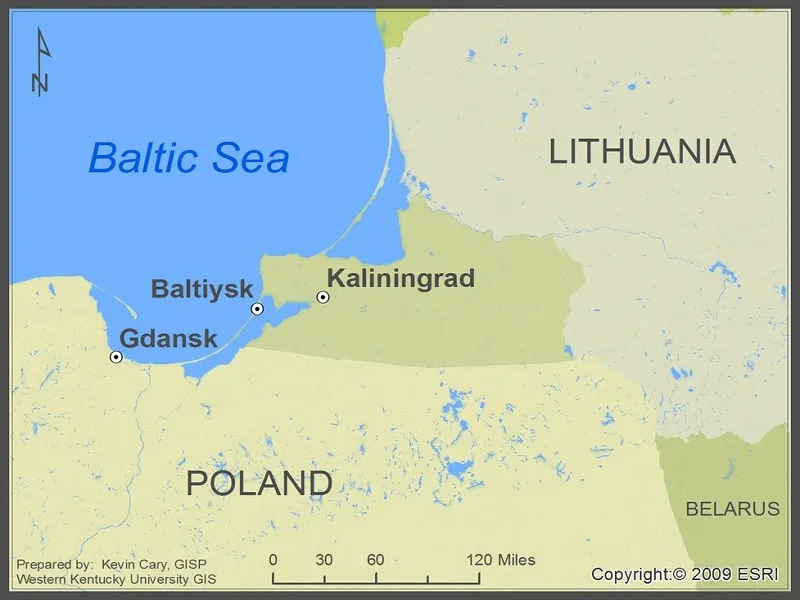
Poland’s Official Renaming Of Kaliningrad Is Driven By Domestic & Regional Calculations
Keep up to Date & Bypass the Big Tech Censorship
Get uncensored news and updates, subscribe to our daily FREE newsletter!
The ruling “Law & Justice” party wants to bolster the perception at home that it’s supposedly still a nationalist-conservative movement while also appealing to more people in Central & Eastern Europe as part of its competition with Germany for leadership of this region.
Russian presidential spokesman Dmitry Peskov condemned Poland’s new legal requirement for its officials to call Kaliningrad by the name “Krolewiec”, which is how it was referred to by that country when it was under Warsaw’s influence as a fief from the mid-15th century to the mid-17th one. This is nothing but a political provocation since it doesn’t change the region’s status as an integral part of Russia, but there’s more to this than just trolling.
Poland’s ruling “Law & Justice” (PiS) party is carrying out another nationalist stunt in an attempt to keep conservatives on its side ahead of this fall’s elections instead of “defecting” to the anti-establishment “Confederation” party out of protest at the incumbent’s betrayal of their principles over the past year. PiS doesn’t want to enter into a coalition with Confederation since this could potentially result in Poland being compelled to curtail its support of Kiev in the NATO-Russian proxy war.
| Recommended Books [ see all ] | ||||
|---|---|---|---|---|
 |  |  |  |
 |
On that topic, this conflict served as the catalyst for accelerating Poland’s long-running plans to become the leader of Central & Eastern Europe (CEE). Deputy Prime Minister Piotr Glinski admitted in an interview earlier this month that “Our concept, which we are implementing, is the concept of Piłsudski”. This can be interpreted as a reference to his “Intermarium” vision of uniting CEE under Polish leadership. To that end, PiS is weaponizing Russophobia by renaming Kaliningrad in order to appeal to the region.
Poland’s envisaged leadership of CEE is still far from certain, however, since it’s fiercely competing with Germany for this position. Berlin isn’t going to sit back and let Warsaw carve out a regional bloc that could then enable it to wrestle control of the EU’s foreign policy. Due to these dynamics, each of them is nowadays trying to outdo the other in the battle for CEE’s hearts and minds, which adds further context to Poland’s latest symbolic move.
With this regional competition in mind, it can’t be ruled out that Warsaw also slyly wanted to provoke Berlin into responding in kind by publicly debating whether it should refer to the Kaliningrad Region as East Prussia and its eponymous city as Konigsberg. Any moves in that direction would immediately be manipulated by PiS to fearmonger about Germany’s regional intentions, however, which could simultaneously be leveraged to boost its standing ahead of fall’s elections and Poland’s in CEE.
Considering the insight shared in this analysis, it can therefore be concluded that Poland’s renaming of Kaliningrad is driven by interconnected domestic and international soft power motives. PiS wants to bolster the perception at home that it’s supposedly still a nationalist-conservative movement while also appealing to more people in CEE as part of its competition with Germany for leadership of this region. It doesn’t imply that Poland is plotting to invade Russia, but it might nevertheless put some locals on edge.


